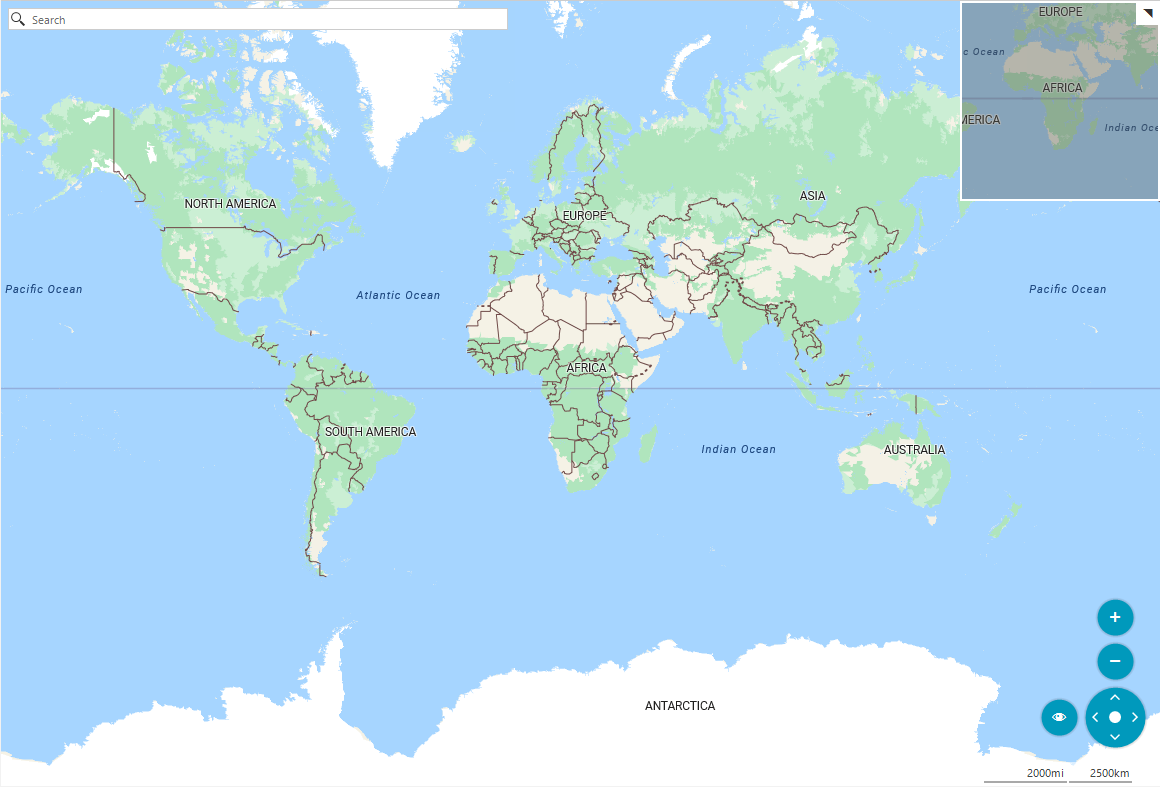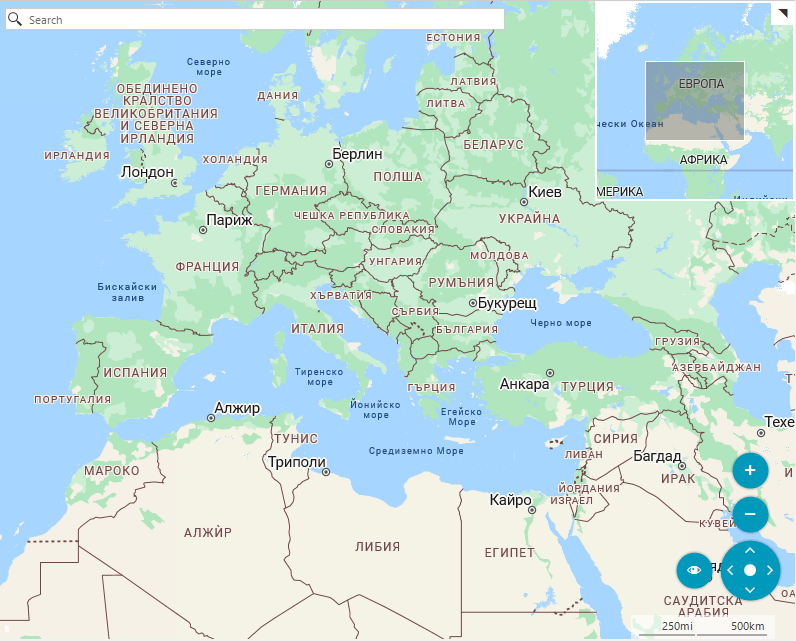Azure Map Provider
The RadMap control supports visualizing tile data using the Azure Maps services. This is done via the AzureMapProvider class. This provider supports both raster and vector sources.
The AzureMapProvider class is introduced with the Q3 2025 official version of our controls.

Setting the AzureMapProvider
To use this provider, create a new AzureMapProvider instance and add it to the Providers collection of the RadMap control. After that, you will need to set the subscription key of the user's Azure account to the AzureAPIKey property of the AzureMapProvider instance. To obtain a key, you can review the Manage authentication in Azure Maps article.
Using AzureMapProvider
string cacheFolder = @"..\..\cache";
AzureMapProvider provider = new AzureMapProvider();
provider.TileSetID = AzureTileSet.Road;
provider.AzureAPIKey = AzureAPIKey;
LocalFileCacheProvider cache = new LocalFileCacheProvider(cacheFolder);
provider.CacheProvider = cache;
this.radMap1.Providers.Add(provider);
Dim cacheFolder As String = "..\..\cache"
Dim provider As New AzureMapProvider()
provider.TileSetID = AzureTileSet.Road
provider.AzureAPIKey = AzureAPIKey
Dim cache As New LocalFileCacheProvider(cacheFolder)
provider.CacheProvider = cache
Me.radMap1.Providers.Add(provider)
Language
The Azure Maps services provide a culture parameter in its URL address and the AzureMapProvider allows you to utilize it. To do so, set the LanguageCulture property to the desired culture string.
provider.LanguageCulture = new CultureInfo("bg-BG");
provider.LanguageCulture = new CultureInfo("bg-BG")

Azure API Version
The AzureMapProvider provides the functionality to specify the Render Rest API version of the Azure Maps services. This is done via the AzureAPIVersion property of the provider. The lastest version of the Render Rest API is 2024-04-01 and the AzureMapProvider uses it.